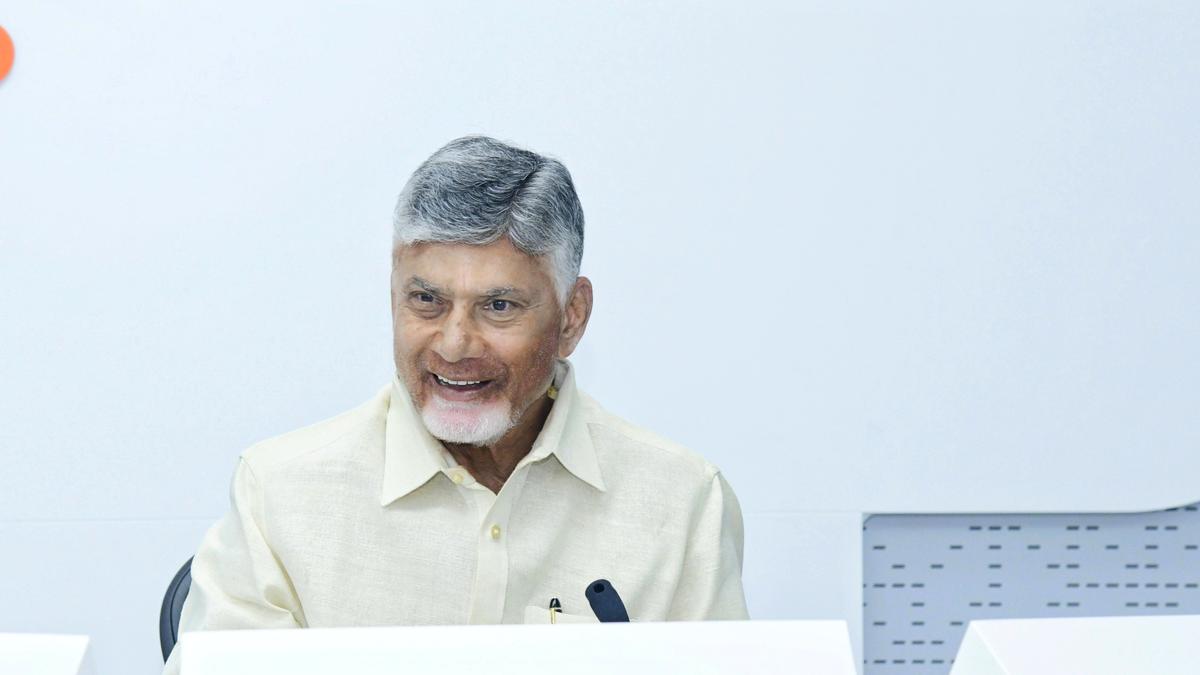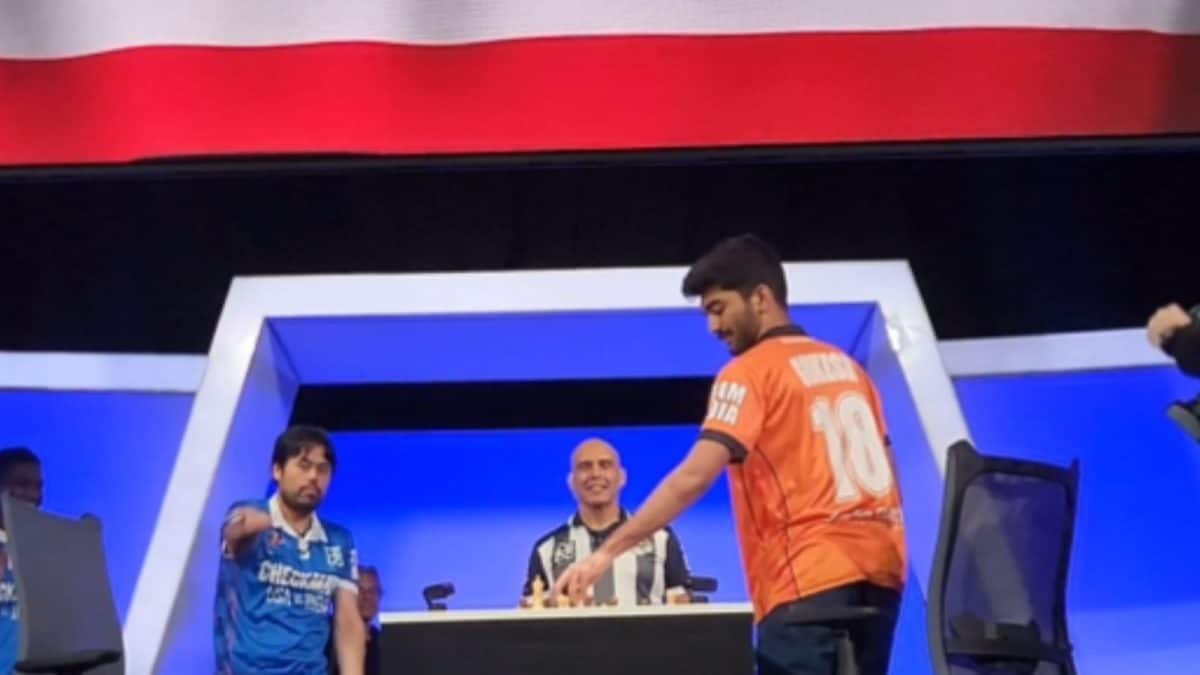ARTICLE AD BOX
Last Updated:October 15, 2025, 17:39 IST
SDPI, often seen as the political offshoot of banned outfit PFI, is once again in the spotlight over intimidation allegations at a Christian school in Kerala

Supporters of Social Democratic Party of India (SDPI) shout slogans during a protest. (REUTERS)
A fresh political and communal row has erupted in Kerala’s Ernakulam district after a hijab-wearing Class 8 student was allegedly denied entry into a Christian-run school. But the controversy escalated sharply when the Social Democratic Party of India (SDPI) was accused of backing the student’s family and “creating a ruckus" on the school campus.
So, what is the SDPI? How is it linked to the banned Popular Front of India (PFI)? Why is it often in the middle of controversies in Kerala and Karnataka? Here’s a detailed explainer.
Why Is SDPI In The News Right Now?
On October 7, a Muslim student at St Rita’s Public School in Palluruthy, Ernakulam was allegedly asked to remove her hijab at the classroom entrance. According to the student, “This school is not allowing me to wear a hijab. They made me stand at the entrance (of the classroom) and told me to remove it. Teachers were rude. I won’t study here."
A fight reportedly broke out between the parents and school authorities, with the Parent-Teacher Association (PTA) stepping in. PTA President Joshi Kaithavalappil told NDTV: “A young girl in a hijab marked the start of a planned attack on a Christian-managed educational institution." He claimed the parents were backed by SDPI workers, who, he alleged, “put more pressure on the school than the parents."
Things escalated further on October 10, when the student’s father and a number of associates, allegedly from the SDPI, came to the school and allegedly hurled abuses at the authorities. In response, the school declared a two-day closure and filed a plea in the Kerala High Court seeking police protection.
Political reactions soon followed. Shone George, a Bharatiya Janata Party (BJP) leader, said: “117 Muslim girls study here and they all abide by the uniform rules. But in this instance, the school actually shut down because of fear of the SDPI… this is the behaviour of the Islamic state. This cannot be allowed."
The school reopened on Wednesday after a two-day closure, under police presence, and classes resumed with the student allowed in hijab.
What Is The SDPI And When Was It Formed?
The Social Democratic Party of India (SDPI) was formed in 2009 as the political front of the Popular Front of India (PFI). It emerged out of the National Political Conference held in Kozhikode in November 2009, which was attended by a range of Islamic, Dalit, and OBC rights groups.
According to the SDPI, its objective is “to empower the marginalised and deprived sections of India by securing for them a fair share in power and resources." The party claims to represent Muslims, Dalits, Adivasis and other backward communities, but most of its visible leadership and cadre base are drawn from Indian Muslims.
The Election Commission of India recognises SDPI as an unrecognised registered political party, with a lion as its poll symbol.
How Is SDPI Linked To The Banned PFI And SIMI?
The SDPI is widely regarded as the political offshoot of the Popular Front of India (PFI), an organisation banned by the Government of India in September 2022 under the Unlawful Activities (Prevention) Act (UAPA). The ban notification labelled the PFI a “major threat to internal security," citing alleged links with global terror outfits including the Islamic State, and accusing it of running training camps and radicalising youth across states like Kerala, Karnataka, Tamil Nadu, and Uttar Pradesh.
But the roots of this network trace back further.
Before the PFI came into existence in 2006, several of its founding members were linked to the Students Islamic Movement of India (SIMI), an Islamist group banned in 2001 for its alleged involvement in extremist activities.
SIMI promoted a vision of establishing an Islamic state and rejected secular democratic values. After its ban, former SIMI operatives reportedly regrouped under new organisational banners. Among these was the National Development Front (NDF) in Kerala, which became the nucleus of the PFI.
The PFI was formally created in 2006 through the merger of three regional Islamist groups:
- National Development Front (NDF) in Kerala
- Karnataka Forum for Dignity (KFD) in Karnataka
- Manitha Neethi Pasarai (MNP) in Tamil Nadu
Over time, as this umbrella body expanded its footprint, the SDPI was floated in 2009 as its political arm, ostensibly to give voice to marginalised Muslims and Dalits through electoral means. However, law enforcement agencies allege that the SDPI served as a front to legitimise and mainstream the PFI’s ideology, while avoiding direct scrutiny under security laws.
A 2023 report by the Hudson Institute, a Washington-based think tank, observed that “PFI leaders were often also SDPI office-bearers", making it difficult to draw a clear line between the two. The report argued that this leadership overlap effectively blurred the distinction between the organisations, allowing shared ideologies, funding, and mobilisation strategies to operate under parallel banners — one social, the other political.
The Indian government echoed similar concerns in its 2022 UAPA ban order, stating that: “PFI and its affiliates including SDPI… have been pursuing a secret agenda to radicalise a particular section of society and to create disaffection against the State."
Despite these allegations and the inclusion of its name in the ban order, SDPI has not been outlawed. It continues to operate legally and contest elections, though under close scrutiny. The party has publicly denied any operational ties with the PFI, claiming to be a separate, secular political organisation committed to “social justice, empowerment, and constitutional rights."
Has SDPI Been Involved In Other Controversies?
Yes, the SDPI has been repeatedly accused of inciting violence and creating communal tension, especially in Kerala and Karnataka. Some of the major controversies involving the party include:
2015 Murder of K Suresh in Kerala: SDPI workers were convicted in the murder of RSS functionary K Suresh in Kannur district. The National Investigation Agency also took over the probe at one point, citing concerns about ideological killings.
2020 Bengaluru Riots: On August 11, 2020, a mob attacked police stations and the residence of a Congress MLA in Bengaluru after a Facebook post deemed offensive to Islam went viral. The violence left three people dead. Karnataka Home Minister at the time, Basavaraj Bommai, alleged that the SDPI played a key role in instigating the violence. Several SDPI workers were arrested, although the party denied any involvement.
2021 Kerala Gold Smuggling Probe Link Allegations: During investigations into the Kerala gold smuggling case, some officials alleged that hawala channels linked to PFI and SDPI had helped fund radical activities in the state. However, the enforcement agencies have not formally linked the SDPI to this case in court.
2022 Murder of BJP Worker in Karnataka: In July 2022, BJP Yuva Morcha member Praveen Nettaru was hacked to death in the Dakshina Kannada district. Karnataka Police later arrested several SDPI and PFI activists in connection with the murder. The state government faced large-scale protests and resignations from BJP workers over what they alleged was the appeasement of SDPI-linked elements.
What Is SDPI’s Electoral Footprint?
While SDPI claims to be a national party, its electoral footprint is mostly limited to parts of Kerala, Karnataka, Tamil Nadu, and some pockets in Uttar Pradesh. It has never won a seat in the Lok Sabha or any state assembly but has managed to secure municipal and panchayat seats, especially in Muslim-majority wards.
In the 2020 Kerala local body elections, SDPI won over 40 seats. However, its rise has triggered concern among both Left and Right political formations, who accuse it of pushing divisive agendas.
So What Happens Next In The Kerala Case?
The case has now reached the Kerala High Court, which will decide whether the school’s uniform policy can override religious freedom in a private Christian institution.

Karishma Jain, Chief Sub Editor at News18.com, writes and edits opinion pieces on a variety of subjects, including Indian politics and policy, culture and the arts, technology and social change. Follow her @kar...Read More
Karishma Jain, Chief Sub Editor at News18.com, writes and edits opinion pieces on a variety of subjects, including Indian politics and policy, culture and the arts, technology and social change. Follow her @kar...
Read More
First Published:
October 15, 2025, 17:39 IST
News explainers What Is SDPI? Why A Hijab Row In Kerala Brought This Controversial Party Back In Focus
Disclaimer: Comments reflect users’ views, not News18’s. Please keep discussions respectful and constructive. Abusive, defamatory, or illegal comments will be removed. News18 may disable any comment at its discretion. By posting, you agree to our Terms of Use and Privacy Policy.
Read More

 2 hours ago
5
2 hours ago
5








 English (US) ·
English (US) ·